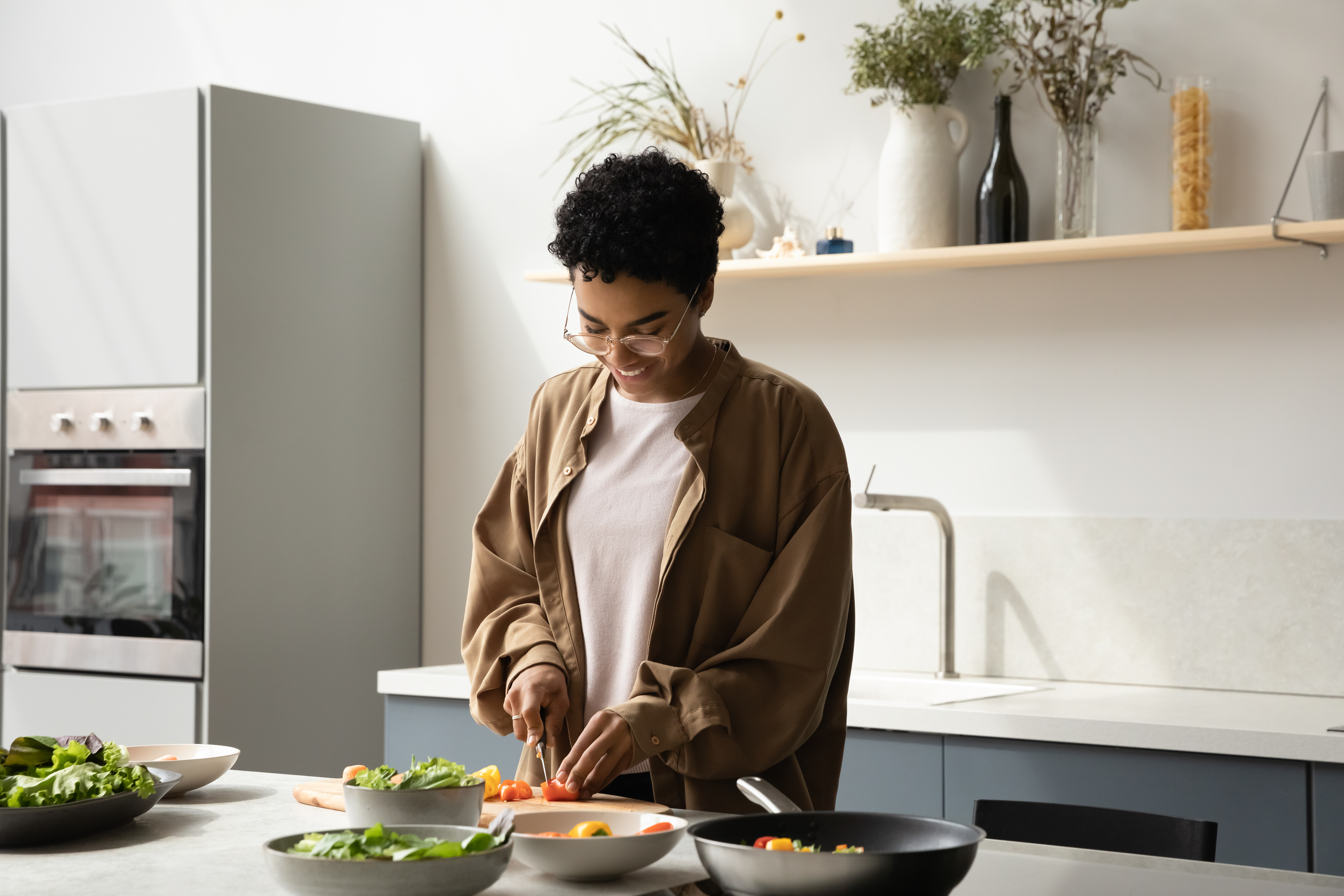
Young woman meditating peacefully under a large tree by the lake in the morning sunlight, practicing mindfulness and connection with nature outdoors
Breaking the Cycle: How Emotional Clarity Leads to Freedom from Food Guilt
Do you ever find yourself reaching for food when emotions run high, only to be left with a heavy dose of food guilt? You’re not alone, and there’s hope. Emotional clarity can be your guiding light out of this cycle. Imagine feeling at peace with your choices, without the burden of shame. In this blog, we’ll explore how understanding your emotions can pave the way to freedom from emotional eating. Ready to embrace a new journey towards self-worth? Let’s get started. For more insights, check out this helpful resource: [https://nudenutritionrd.com/food-freedom-break-free-from-food-guilt/].
The Role of Emotional Clarity

Emotional clarity is the ability to understand and manage your emotions effectively. This awareness helps differentiate between physical hunger and emotional hunger, providing a foundation for healthier eating habits. By recognizing emotions that trigger unhealthy eating patterns, you can begin to address the root causes of food guilt and emotional eating. This clarity is not just about identifying negative feelings but also understanding how to respond to them in constructive ways. Let’s explore how this understanding can transform your relationship with food. 🍏
Understanding Your Emotions
Understanding your emotions starts with acknowledging their presence. Often, emotions guide our actions, especially when it comes to eating. Emotional eating can be a response to stress, sadness, or even boredom. By identifying these feelings, you gain insight into why you’re reaching for food.
Recognizing patterns in your emotional responses is crucial. Are there certain times or events that trigger these emotions? Keeping a journal can help track your feelings and the events associated with them.
Once you understand your emotions, you can start to separate them from your eating habits. This separation is essential for overcoming food guilt and building self-worth. It’s about creating a mindful space between feeling and eating, allowing for better decision-making.
Identifying Triggers
Recognizing triggers is a key step in emotional clarity. Triggers are situations or feelings that prompt you to eat when you’re not hungry. They can be as simple as a stressful workday or as complex as unresolved conflicts.
To identify your triggers, start by noting when you feel compelled to eat emotionally. Was it after a disagreement? Or perhaps following a long, tiring day? Understanding these patterns can help in managing them.
Creating a list of common triggers can be beneficial. With each trigger, think of an alternative response. Instead of reaching for food, consider activities like a short walk or a deep-breathing exercise. This proactive approach can gradually reduce reliance on food for emotional comfort. Check out this guide for more insights. 📝
Breaking Free from Food Guilt

Letting go of food guilt involves changing your perception of food and emotions. It’s not just about resisting the urge to eat but about understanding why you feel guilty in the first place. By addressing the root causes, you can begin to heal. This section will provide practical strategies to help you move forward without guilt.
Overcoming Emotional Eating
Overcoming emotional eating is a process, not a one-time fix. First, identify the emotions that drive your eating habits. Are they linked to stress, loneliness, or boredom? Understanding these connections is crucial.
Next, create a plan for alternative activities. When you feel the urge to eat emotionally, try engaging in a hobby, exercising, or calling a friend. These alternatives can redirect your focus and provide the same emotional relief without food.
Mindful eating is also an effective tool. By paying attention to your hunger cues and savoring each bite, you can prevent overeating. This practice encourages you to appreciate food without the accompanying guilt. Read more about emotional eating at this site. 🍽️
Building Self-Worth
Building self-worth involves shifting the focus from food to self-care. Self-worth is about valuing yourself beyond your dietary choices. It involves accepting yourself as you are, with all your strengths and imperfections.
Start by celebrating small victories. Did you manage to avoid a binge eating episode? Acknowledge this achievement. Positive self-reinforcement helps build confidence and resilience.
Engage in activities that boost your self-esteem. Whether it’s pursuing a new hobby or volunteering, these actions affirm your value. As your self-worth grows, the need for food as emotional support diminishes. For more resources on building self-worth, visit this link. 💪
Tools for Emotional Healing

Achieving emotional clarity requires tools and strategies that support long-term healing. These tools help in managing emotions and reducing reliance on food as a coping mechanism. By integrating these strategies into daily life, you can foster a healthier relationship with food and yourself.
VK Circle Coaching Approach
The VK Circle coaching approach offers a unique method for emotional healing. This non-clinical practice focuses on the Life® methodology, designed to help individuals overcome emotional eating. Through this approach, you’ll learn mindset reprogramming tools that foster self-worth and emotional clarity.
Initial Assessment: Identify emotional triggers and eating patterns.
Personalized Plan: Develop strategies tailored to specific needs and goals.
Mindset Coaching: Use mindset reprogramming to change negative thought patterns.
Support and Accountability: Ongoing support ensures lasting change.
VK Circle’s compassionate coaching creates a safe environment for exploring emotions without judgment. This supportive approach encourages growth and healing. 🌟
Practical Tips for Lasting Change
Implementing lasting change involves practical steps that support emotional healing and reduce food guilt. Here are some effective tips:
Keep a Journal: Document your emotions and eating habits to identify patterns.
Practice Mindfulness: Engage in mindful eating to appreciate food and recognize hunger cues.
Set Realistic Goals: Focus on small, achievable changes rather than drastic diets.
Seek Support: Surround yourself with a supportive community or coach.
Develop Coping Mechanisms: Find healthy alternatives to emotional eating, like exercise or meditation.
These tips provide a foundation for breaking free from emotional eating. Each small step contributes to a larger transformation. For more practical advice, visit this helpful guide. 🌼
Ready to break free from the cycle of food guilt? Schedule a free consultation today and find a path to emotional clarity! Sign up for our newsletter to receive a free guide on emotional clarity and start your journey towards self-love and freedom from food guilt. 💖



